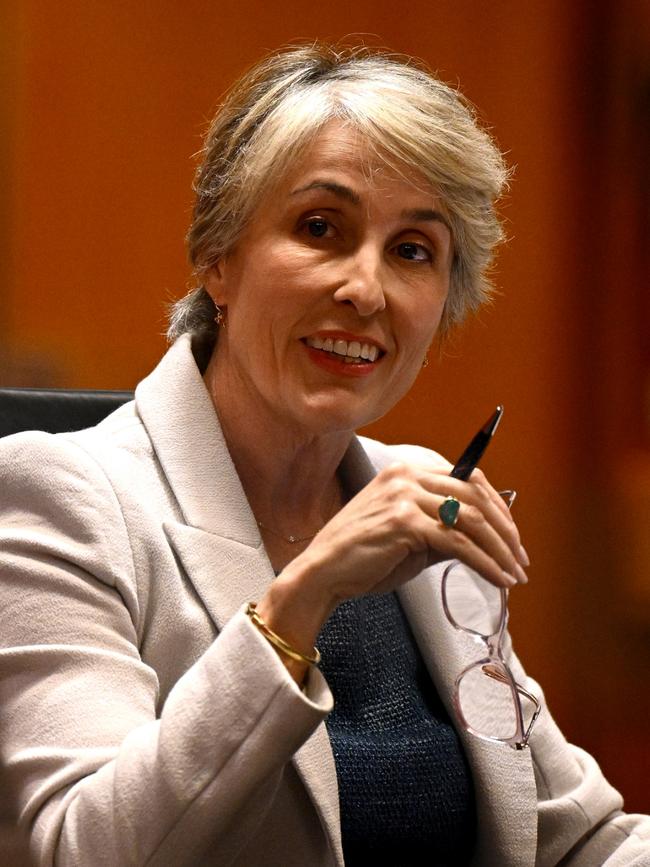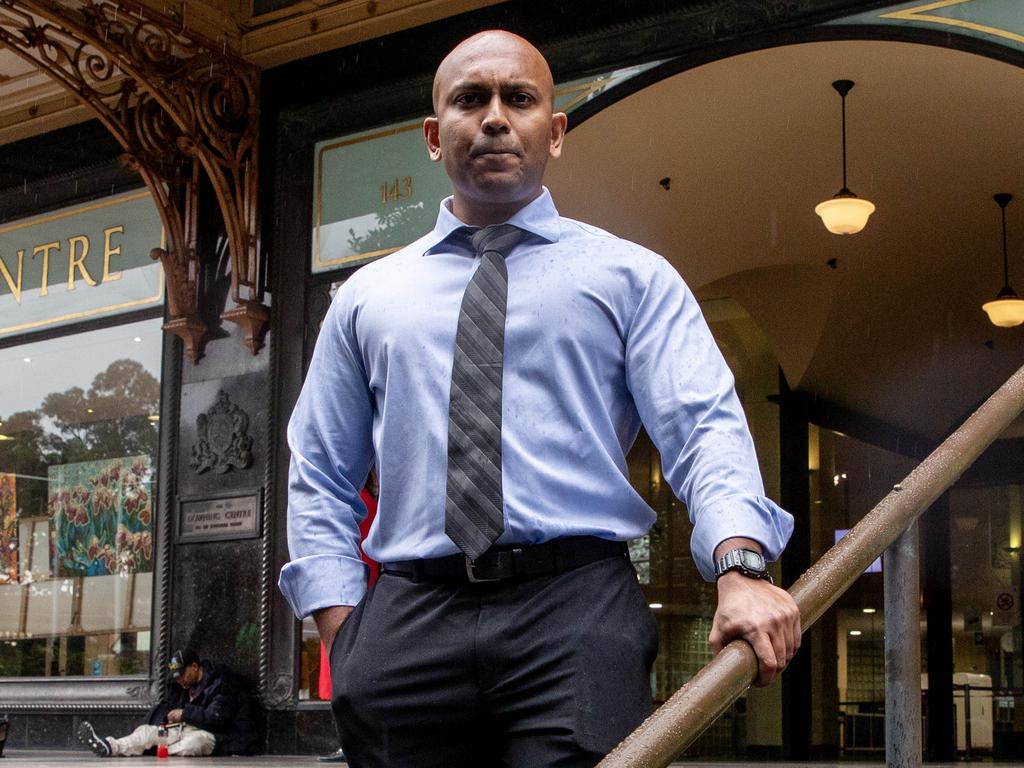Watchdog recommends judge Robert Newlinds be sidelined amid Sally Dowling SC complaint
NSW Judicial Commission recommended Robert Newlinds, who accused the prosecution office of making ‘lazy’ referrals of baseless rape accusations to court, be stood aside from criminal trials.

A NSW judge who accused the state prosecution office of making “lazy and perhaps politically expedient” referrals of meritless rape accusations to court should be sidelined from hearing criminal matters, the judicial watchdog has recommended.
The NSW Judicial Commission this week upheld a complaint lodged by chief prosecutor Sally Dowling SC against District Court judge Robert Newlinds, after he alleged there was an “unwritten policy” at the Office of the Director of Public Prosecutions that sexual assault cases are run “without a sensible and rational interrogation” of the complainant.
NSW chief judge Sarah Huggett on Friday said she was considering the commission’s report, which found Judge Newlinds made “unreasonable criticism” of a rape complainant and derided Ms Dowling’s office “without notice or evidence”.
Ms Dowling, in an intranet post written for all her employees, celebrated the findings against Judge Newlinds, and said she remained “steadfastly supportive” of the work her office is doing.

Judge Newlinds late last year registered in a court judgment his “deep level of concern” that the ODPP was sometimes putting hopeless cases before juries.
“On 20 December 2023 the ODPP published a media statement concerning the decision of Judge Newlinds SC in the matter of R v Martinez [2023] NSWDC 552,” Ms Dowling wrote in the intranet statement, posted on Thursday.
“The statement indicated that I intended to make a complaint to the Judicial Commission about the conduct of Judge Newlinds SC with respect to the contents of that judgment. Yesterday, I was notified that the Conduct Division of the Judicial Commission has upheld my complaint.”
Ms Dowling said the commission had “accepted as substantiated” her complaint that Judge Newlinds “demonstrates a lack of awareness or misunderstanding of the law as it applies to the conduct of criminal trials and related applications”.
She said the commission also accepted:
- Aspects of her complaint “relating to failures in judicial impartiality, detachment and demeanour, including the Judge’s comments about the Crown and his admitted bullying of the Solicitor Advocate”
- Her complaint of “unreasonable criticism/vilification of a sexual assault complainant”
- Her complaint of “baseless criticism” of her office, especially considering it was made “without notice or evidence”.
The commission also recommended Judge Newlinds be mentored by senior judges, a person with knowledge of the matter told The Australian.
The Australian understands it is up to Chief Judge Huggett to make a final determination on the matter. A spokesperson for Chief Judge Huggett said she received a copy of the report on August 20 and it is “being considered”.
Ms Dowling took aim at the media for “unfairly” disparaging her office.
“As I have made clear on numerous previous occasions, I unequivocally reject Judge Newlinds’ criticisms and I remain steadfastly supportive of the professional, diligent and committed staff of the ODPP,” she wrote.
Judge Newlinds comments criticising the ODPP were issued in the judgment granting a costs certificate following a trial in which the accused was found not guilty after one hour of deliberation by a jury, with the trial presented with clear evidence that the sex he had with the alleged victim was consensual.
The woman had alleged the man sexually assaulted her because she was so drunk she had a blackout and could not remember the events, despite the evidence indicating she had initiated sex and had “enthusiastically participated” in four occasions of intercourse.
The woman believed that because she could not remember the events, despite presenting as rational and functional at the time, she could not have consented.
The DPP prosecuted the case on that basis, to heavy criticism from the judge who said the case should never had gone to trial.






